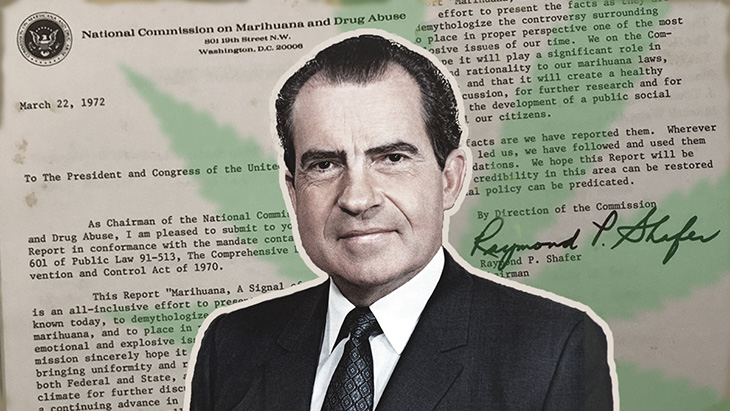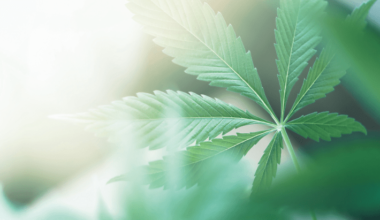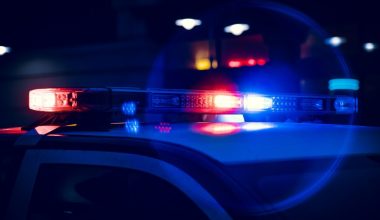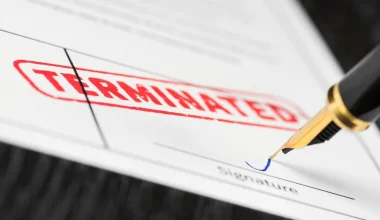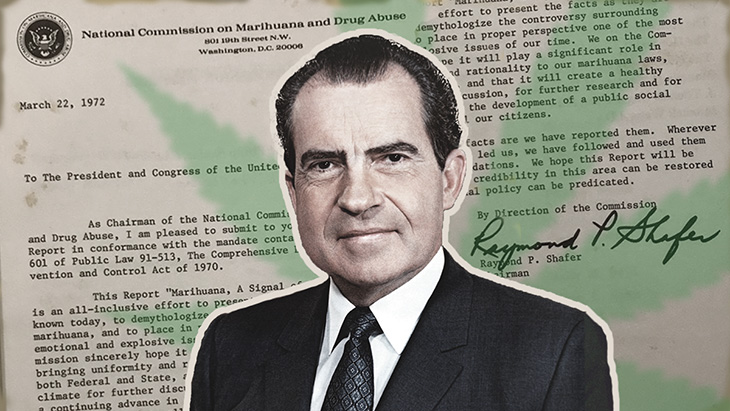
Former President Richard Nixon privately questioned his administration’s tough stance on marijuana and acknowledged that the substance posed limited public health risks, according to newly uncovered audio recordings.
The recordings, first identified by Minnesota NORML co-founder Kurtis Hanna and highlighted by The New York Times on Saturday, archive conversations between Nixon and White House aides on March 6, 1973. Hanna says that the recordings reveal that Nixon was “not a true believer” in the drug war, despite being among its chief architects.
On the recordings, Nixon admits that marijuana “isn’t particularly dangerous” and that he thinks that “there should be an evaluation of the penalties” surrounding its possession and use. However, Nixon later said that softening the administration’s stance on cannabis could send “the wrong signal at this time.”
Nixon’s private admission occurred one-year after his administration rejected the findings of a blue-ribbon commission (the National Commission on Marihuana and Drug Abuse a/k/a the Shafer Commission) calling upon Congress and the administration to repeal federal penalties criminalizing the personal possession of marijuana. Nixon had hand-picked the Commission’s members.
Congress passed and Nixon signed the Controlled Substances Act into law in 1970. The law created five distinct classifications for certain controlled substances and placed cannabis in the most restrictive category, Schedule I. By definition, Schedule I substances are federally criminalized because they possess “no currently accepted medical use in the United States,” a “high potential for abuse” and “lack accepted safety under medical supervision.” The law took effect on May 1, 1971.
“These audio recordings reinforce the fact that the federal government’s decision to strictly criminalize marijuana was primarily a political one,” NORML’s Deputy Director Paul Armentano said. “Neither cannabis’ federal classification, nor the criminal penalties surrounding its use, are commensurate with its relative risk potential — particularly when compared to the well-established health and public safety risks associated with alcohol and tobacco.”
In previously unearthed audio recordings, former Nixon domestic policy chief John Ehrlichman acknowledged: “We couldn’t make it illegal to be either against the [Vietnam] war or black,” but we could get “the public to associate the hippies with marijuana and blacks with heroin.”
By “criminalizing both heavily,” Ehrlichman explained, “we could disrupt those communities. We could arrest their leaders. raid their homes, break up their meetings, and vilify them night after night on the evening news. … Did we know we were lying about the drugs? Of course we did.”
In December, the Drug Enforcement Administration is set to commence a hearing on a proposed rule to reclassify cannabis from Schedule I to Schedule III of the Controlled Substances Act. Historically, the agency has rejected every prior effort to remove marijuana from Schedule I.
Related
Medical Disclaimer:
The information provided in these blog posts is intended for general informational and educational purposes only. It is not a substitute for professional medical advice, diagnosis, or treatment. Always seek the advice of your physician or other qualified healthcare provider with any questions you may have regarding a medical condition. The use of any information provided in these blog posts is solely at your own risk. The authors and the website do not recommend or endorse any specific products, treatments, or procedures mentioned. Reliance on any information in these blog posts is solely at your own discretion.
